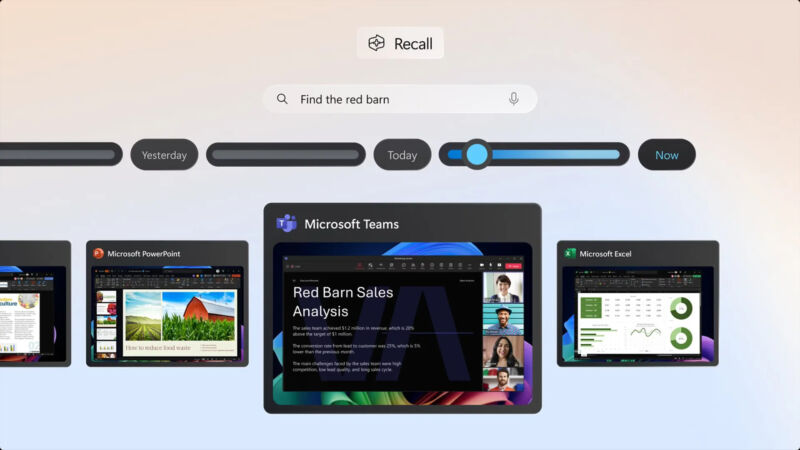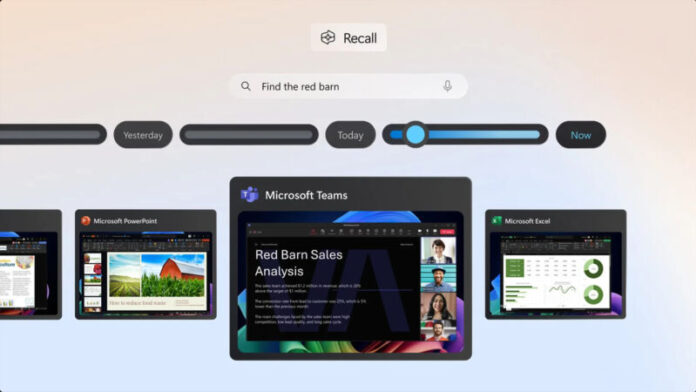
Enlarge / A screenshot of Microsoft's new "Recall" feature in action. (credit: Microsoft)
At a Build conference event on Monday, Microsoft revealed a new AI-powered feature called "Recall" for Copilot+ PCs that will allow Windows 11 users to search and retrieve their past activities on their PC. To make it work, Recall records everything users do on their PC, including activities in apps, communications in live meetings, and websites visited for research. Despite encryption and local storage, the new feature raises privacy concerns for certain Windows users.
"Recall uses Copilot+ PC advanced processing capabilities to take images of your active screen every few seconds," Microsoft says on its website. "The snapshots are encrypted and saved on your PC’s hard drive. You can use Recall to locate the content you have viewed on your PC using search or on a timeline bar that allows you to scroll through your snapshots."
By performing a Recall action, users can access a snapshot from a specific time period, providing context for the event or moment they are searching for. It also allows users to search through teleconference meetings they've participated in and videos watched using an AI-powered feature that transcribes and translates speech.
Read 6 remaining paragraphs | Comments
Ars Technica - All contentContinue reading/original-link]




